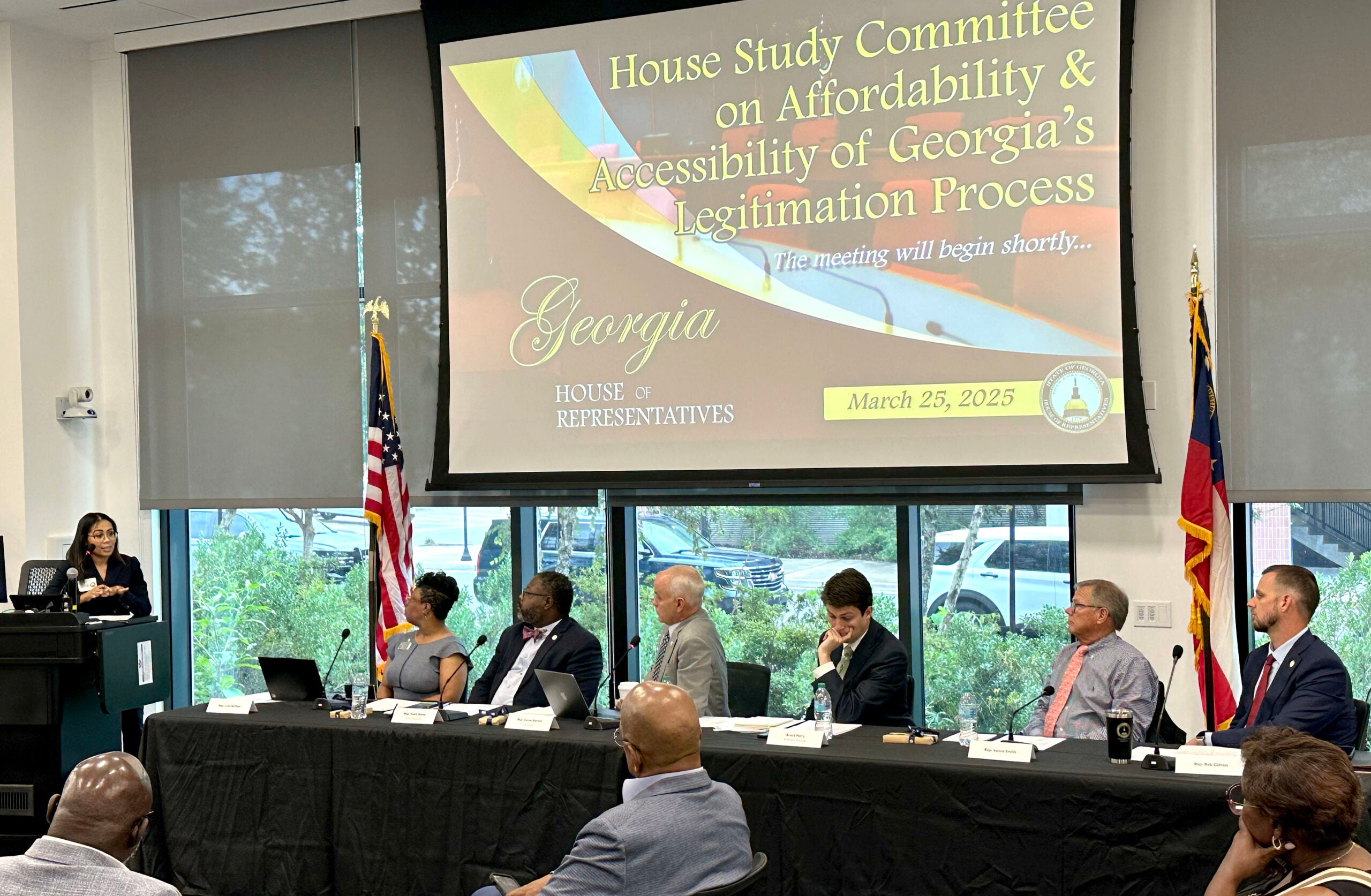A Georgia House study committee looking at ways to help men with children born out of wedlock be more involved fathers held a third meeting Wednesday in Augusta.
Over 46% of Georgia children are born to unmarried parents, but fathers have no automatic rights to custody or visitation.
Even if both parents agree on paternity, Georgia fathers must get a court order to establish the legal relationship with a child if not married to the mother.
The bipartisan committee is chaired by Rep. Carter Barrett of Cumming and includes Rep. Lynn Heffner of Hephzibah and Rep. Rob Clifton of Evans.
During the meeting at the Georgia Cyber Center, members heard testimony from experts as well as from fathers seeking better relationships with their children.
Local attorney Katrell Nash said the barriers she sees fathers encounter are the amount of time and expense needed to legitimate a child, as well as court backlogs.
Beyond hiring a lawyer, the father may wind up having to pay private investigators to locate the child, a guardian ad litem and a mediator plus the usual court fees and costs, she said.
One dad got what he wanted, but the process took three years and he spent over $7,000, she said. “Can imagine how hard that is for ordinary Georgians?”
Several fathers expressed frustration at a system that seems stacked against them. Even if they have resources, a dad may face opposition from the child’s mother for reasons unrelated to the child, said Andre Lacey, a PGA professional who spoke at the meeting.
Lacey said he has not been able to see his son in just over three years.
Michelle Lockhart, a legitimation specialist with Fathers Incorporated, said the process is arduous for fathers. As many as 80% who start do not finish, she said.
Howard Robinson said as an educator without so much as a traffic ticket it’s frustrating being blocked from parenting his child simply because he’s a man.
“Because of Georgia laws, I don’t get to see my son. I did everything right,” Robinson said. “We have to fight to prove our value. I have to show the court why I should be there.
The committee’s next step is to prepare a report it will present to the General Assembly next year.










